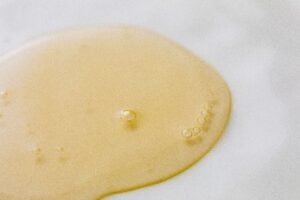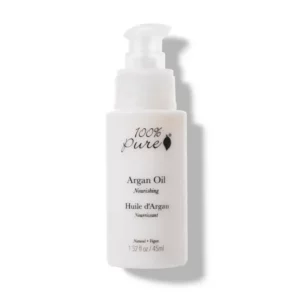Skincare Myths Debunked

When it comes to skincare, it’s easy to get caught up in the whirlwind of advice, tips, and product recommendations. Among the many natural oils touted for their benefits, argan oil stands out. Loved for its versatility and nourishing properties, argan oil has been praised as a skincare savior. However, there’s one common misconception that needs to be addressed: the relationship between argan oil and acne. In this 600-word beauty blog, we’ll debunk the skincare myth and reveal the truth about using argan oil when dealing with acne-prone skin.
Understanding Argan Oil
Before diving into the argan oil and acne debate, let’s get to know this liquid gold a little better. Argan oil is extracted from the kernels of the argan tree, which is native to Morocco. It’s renowned for its rich content of essential fatty acids, antioxidants, and vitamins. These properties make it a highly sought-after ingredient in the beauty industry.
Argan oil is celebrated for its potential to moisturize, reduce inflammation, and protect the skin from free radicals. It’s commonly used in products designed to improve skin hydration, reduce fine lines, and even out skin tone. Its nourishing properties make it suitable for all skin types, including those with sensitive skin.
The Acne Myth: Argan Oil as a Culprit
Despite its many benefits, argan oil has sometimes been accused of causing or exacerbating acne. This myth has persisted due to a misunderstanding of how argan oil interacts with the skin and a few unfortunate personal experiences.
Let’s set the record straight: argan oil is not an acne culprit. In fact, when used correctly, it can be a valuable addition to your skincare routine, even if you have acne-prone skin. Here’s why:
- Non-Comedogenic Nature: Argan oil is considered non-comedogenic, meaning it doesn’t clog pores. Acne is often the result of blocked hair follicles, which can lead to inflammation and the development of pimples. Non-comedogenic oils, like argan oil, are unlikely to contribute to this issue and may even help keep your skin hydrated and balanced.
- Anti-Inflammatory Properties: Argan oil has natural anti-inflammatory properties that can soothe irritated skin. Inflamed, acne-prone skin can benefit from the calming and nourishing effects of argan oil, which may help reduce redness and irritation.
- Hydration without Excess Oil: Argan oil is known for its ability to hydrate the skin without making it greasy. This is essential for acne-prone individuals, as overly dry skin can trigger excess oil production, potentially leading to more breakouts. By maintaining the skin’s moisture balance, argan oil can support a healthy complexion.
- Rich in Antioxidants: Argan oil is packed with antioxidants, such as vitamin E, which help protect the skin from free radicals. Acne can leave behind scars and pigmentation issues, and antioxidants can aid in the repair and regeneration of damaged skin, promoting a clearer complexion.
Using Argan Oil for Acne-Prone Skin
Now that we’ve debunked the myth, let’s explore the best ways to incorporate argan oil into your skincare routine if you have acne-prone skin:
- Patch Test: As with any new skincare product, it’s essential to perform a patch test before applying argan oil to your face. Apply a small amount of oil to a discreet area of your skin, like your inner forearm, and wait to see if any adverse reactions occur.
- Dilute with a Carrier Oil: If you’re concerned about using argan oil directly on your face, you can dilute it with a non-comedogenic carrier oil, such as jojoba oil. This reduces the concentration of argan oil and can make it even gentler on your skin.
- Nighttime Use: Many people find it beneficial to use argan oil as a part of their nighttime skincare routine. Apply a small amount to your face after cleansing and toning, allowing it to absorb while you sleep. This gives your skin ample time to reap the benefits without the interference of makeup or sunscreen.
- Use Sparingly: A little goes a long way with argan oil. You only need a few drops to cover your entire face. Using too much can make your skin feel greasy, which is counterproductive for acne-prone skin.
- Spot Treatment: If you have specific areas of concern, like acne scars or dry patches, use argan oil as a spot treatment. Apply a small amount directly to these areas to target the problem without applying it to your entire face.

The myth that argan oil causes or exacerbates acne has been debunked. In reality, this natural oil offers a range of benefits for all skin types, including acne-prone skin. By understanding how to properly incorporate argan oil into your skincare routine, you can enjoy its moisturizing, soothing, and antioxidant-rich properties without worrying about breakouts.
As with any skincare product, consistency and patience are key. While argan oil can provide relief for those with acne-prone skin, results may take time. With proper usage and consistent application, you may discover that argan oil becomes a cherished part of your skincare routine, helping you achieve a healthier and clearer complexion.

